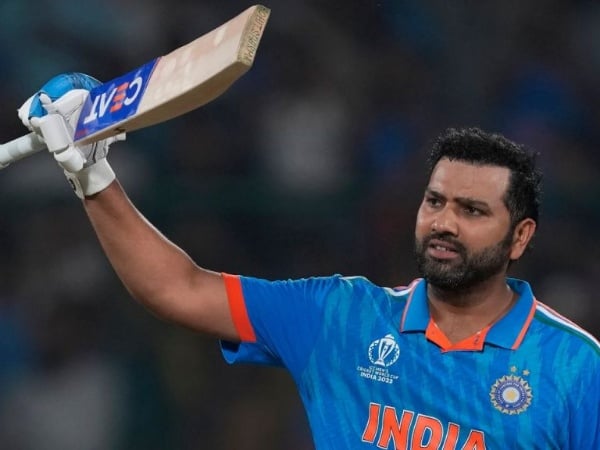Rohit Sharma Equals Chris Gayle In Most ODI Sixes Record
Indian team captain Rohit Sharma has once again made headlines by equalling the legendary Chris Gayle’s record of 331 sixes in One-Day International (ODI) cricket. Sharma achieved this remarkable feat during the third and final ODI against Sri Lanka on August 7, 2024, in Colombo. This milestone came amid a challenging match for India, who suffered a heavy 110-run defeat, allowing Sri Lanka to secure their first bilateral series victory over the Men in Blue since 1997. Despite the team's loss, Sharma's performance provided a bright spot. Over his ODI career, which began in 2008, Sharma has now hit 331 sixes, matching the West Indian great Chris Gayle, who previously held the record for the most sixes in ODI history.
Sharma's accomplishment highlights his incredible power-hitting capabilities and consistency in the format. Prior to this, Gayle had set the record for the most sixes in ODIs, a testament to his explosive batting style. Sharma, who has been one of the most prolific batsmen in recent years, was recognized as holding the second-highest number of sixes in ODIs before this record-equalling feat. This achievement underscores Sharma’s continued dominance and influence in the game, despite the overall series defeat.
Rohit Sharma's knack for hitting sixes with remarkable ease has cemented his reputation as a standout player throughout his cricketing career. Known for his power-hitting, Sharma has consistently been a dominant force, especially in the shorter formats of the game. In the third ODI against Sri Lanka on August 7, 2024, Sharma continued to showcase his prowess by scoring 35 runs off just 20 balls. During this innings, he hit one six, which was crucial in helping him equal Chris Gayle’s record of 331 sixes in One-Day Internationals (ODIs).
As it stands, the only player ahead of Sharma and Gayle in the all-time list of most sixes in ODIs is former Pakistan captain and all-rounder Shahid Afridi, who holds the record with 351 sixes. Sharma, with his powerful hitting and impressive form, will likely aim to surpass Afridi’s record in upcoming matches and potentially become the greatest six-hitter in ODI history.
Additionally, Sharma’s performance in this series contributed to another notable achievement. He has become the fourth Indian batter to score over 2,000 runs against Sri Lanka in ODIs, joining the ranks of cricket legends Sachin Tendulkar, Virat Kohli, and MS Dhoni. This milestone further highlights Sharma’s significant impact and consistent performance against the island nation in the 50-over format. In the third and final ODI against Sri Lanka, the hosts won the toss and chose to bat first. Their decision proved effective as Avishka Fernando, Kusal Mendis, and Pathum Nissanka delivered solid performances with the bat. Fernando scored a robust 96 runs, Mendis contributed 59, and Nissanka added 45, helping Sri Lanka set a challenging total of 248 for 7.
For the visiting Indian team, debutant Riyan Parag was the standout bowler. He impressed with his spell, finishing with figures of 3 for 54, showcasing his potential and skill on his ODI debut. Despite Parag’s efforts, the Indian batting lineup struggled to build on the good start provided by their captain, Rohit Sharma. Sharma’s innings offered hope, but the lack of support from the other batsmen led to a disappointing performance.
The inability of the Indian middle and lower order to capitalize on the early momentum ultimately cost them the match and the series. This pattern of inconsistency with the bat, despite individual contributions, was a significant factor in their 110-run defeat. As a result, Sri Lanka secured their first bilateral series victory over India since 1997, marking a notable achievement for the island nation and a setback for the Men in Blue.
